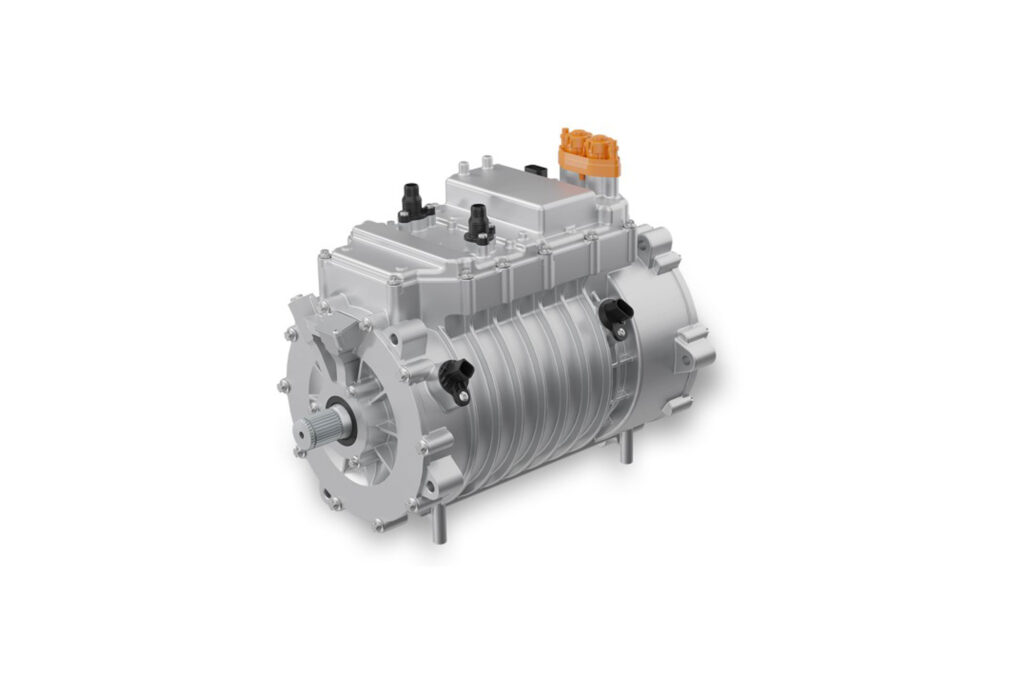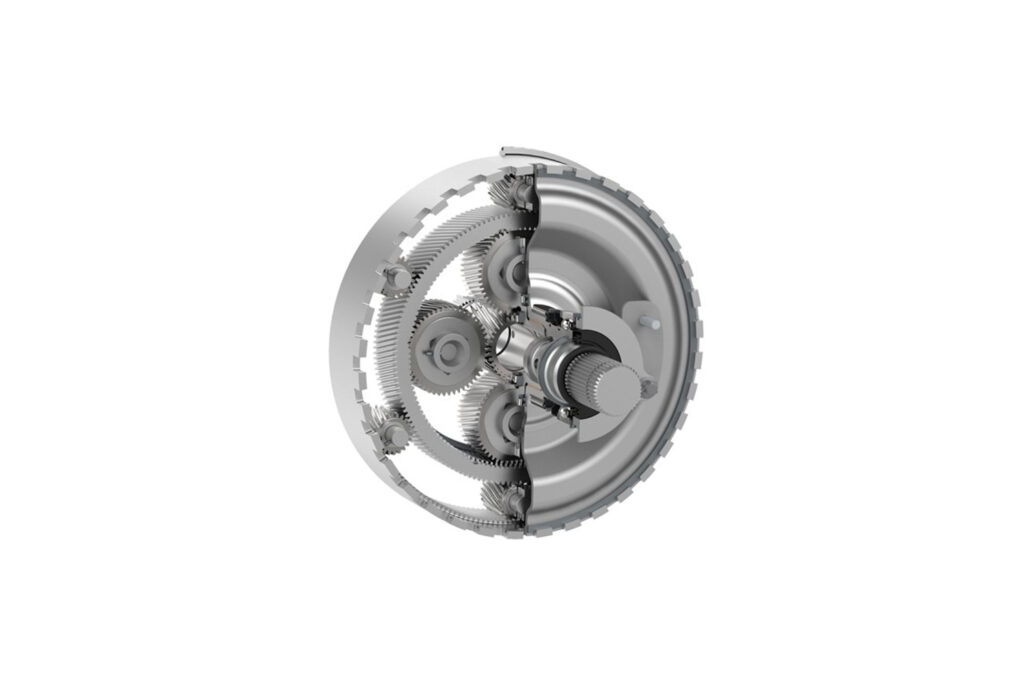Supplier company ZF is developing an electric vehicle drivetrain that’s lighter, more sustainable and requires no heavy rare-earth materials, plus, this system is significantly more efficient in cold temperatures. The German firm’s EVbeat concept offers numerous — and significant — benefits in a package that’s not radically different from powertrains in production today.
Demonstrated in a Porsche Taycan, an already efficient electric vehicle, the heart of EVbeat is something called TherMaS, an advanced thermal-management system for vehicle heating and cooling. Daniel Langhof, an engineer for the ZF Group explained, “At freezing temperatures, we can improve the range by 20%,” a huge increase. Likewise, efficiency is enhanced in warmer temperatures, too, climbing by around 15%.
A key driver of these gains is the refrigerant used. Rather than a more traditional fluorine-based coolant, TherMaS incorporates propane, yes, propane. According to ZF, this design only needs half as much refrigerant as other thermal management systems, but still manages to increase cooling capacity by a factor of two. Langhof also noted, propane “works better for cooler temperatures.”

Another major driver of increased vehicle efficiency is the EVbeat’s motor design, which is super clever in several ways. Engineers created an electric drive unit that’s half the size, 30% lighter and delivers the same output as other motor assemblies. Weighing just 165 pounds (75 kilograms), this system is good for an impressive 369 horsepower (275 kilowatts) and 391 pound-feet of torque (530 Newton-meters).
Helping deliver those output figures and other benefits, Langhof said the electric motor is internally cooled with oil. “And so, we can pull the heat out of the copper,” he explained, “so we can achieve much more power out of a smaller e-motor.” That energy is then dissipated via the TherMaS system, which includes a compressor and heat exchanger, in addition to other components.
“We have also reduced the heavy rare earths in this e-drive,” said Langhof, specifically elements like terbium and dysprosium. Thanks to that internal oil cooling, they can “keep the temperatures very low, so that’s no problem for this to be demagnetized,” which eliminates the need for exotic materials that are difficult to source and have burdensome environmental concerns around extraction, transportation and refining.

But there’s one more element of the EVbeat concept that improves vehicle efficiency: gearing. The traditional differential with a ring and pinion assembly has been eliminated. “(Instead) it is a planetary gearset, or two stacked differential gearsets,” said Langhof. This design is much smaller and lighter than a traditional differential assembly, yet it serves the same function.
ZF’s EVbeat drivetrain concept is still under development, but nothing about it seems exotic or prohibitively expensive, meaning mass production shouldn’t be an issue, and of course, the claimed benefits of are enormous. Greater range in all temperatures, a smaller and lighter package that delivers the same power and torque, internal oil cooling and a lack of heavy rare-earth elements are a few of this system’s benefits. Hopefully, this technology will enter service sooner than later. “And we are ready if anybody wants (it),” said Langhof.

